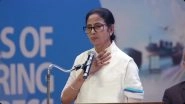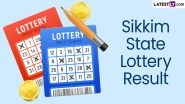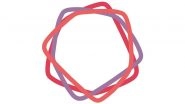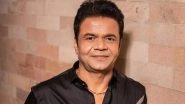Washington, Sep 18 (PTI) Scientists have identified at least four new distinct personality types -- average, reserved, self-centered and role model -- after sifting through data from over 1.5 million people across the globe.
The findings, published in the journal Nature Human Behaviour, could be of interest to hiring managers and mental health care providers.
"People have tried to classify personality types since Hippocrates' time, but previous scientific literature has found that to be nonsense," said William Revelle, a professor at Northwestern University in the US.
"Now, these data show there are higher densities of certain personality types," said Revelle.
The concept of personality types remains controversial in psychology, with hard scientific proof difficult to find. Previous attempts based on small research groups created results that often were not replicable.
"Personality types only existed in self-help literature and did not have a place in scientific journals," said Luis Amaral, a professor at Northwestern.
"Now, we think this will change because of this study," said Amaral.
The new research combined an alternative computational approach with data from four questionnaires with more than 1.5 million respondents from around the world.
The questionnaires, developed by the research community over the decades, have between 44 and 300 questions. People voluntarily take the online quizzes attracted by the opportunity to receive feedback about their own personality.
These data are now being made available to other researchers for independent analyses.
"The thing that is really, really cool is that a study with a dataset this large would not have been possible before the web," Amaral said.
"Previously, maybe researchers would recruit undergrads on campus, and maybe get a few hundred people. Now, we have all these online resources available, and now data is being shared," he said.
From the datasets, the team plotted the five widely accepted basic personality traits: neuroticism, extraversion, openness, agreeableness and conscientiousness.
After developing new algorithms, four clusters emerged: Average, reserved, role models and self-centred.
Average people are high in neuroticism and extraversion, while low in openness.
"I would expect that the typical person would be in this cluster," said Martin Gerlach, a postdoctoral fellow in Amaral's lab.
Females are more likely than males to fall into the average type.
The reserved type is emotionally stable, but not open or neurotic. They are not particularly extraverted but are somewhat agreeable and conscientious.
Role models score low in neuroticism and high in all the other traits. The likelihood that someone is a role model increases dramatically with age.
"These are people who are dependable and open to new ideas. In fact, life is easier if you have more dealings with role models." More women than men are likely to be role models," said Amaral.
Self-centred people score very high in extraversion and below average in openness, agreeableness and conscientiousness.
There is a very dramatic decrease in the number of self-centred types as people age, both with women and men.













 Quickly
Quickly


